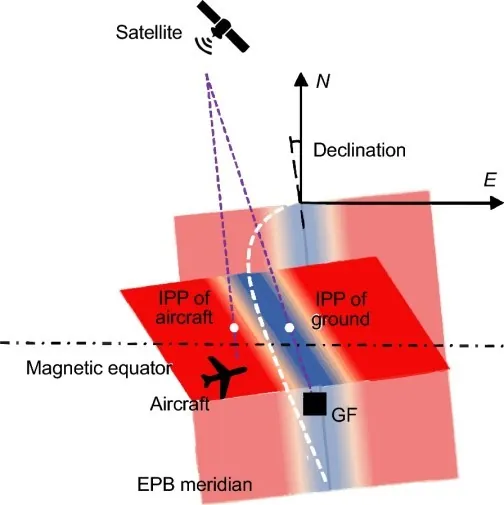
Hong Kong Researchers Revolutionize Aviation Safety Amid Plasma Bubble Threats
2024-12-11
Author: Wai
Introduction
In a groundbreaking study, researchers at the Hong Kong Polytechnic University are tackling the hazardous effects of equatorial plasma bubbles (EPBs) on aviation safety, particularly concerning satellite-based navigation systems.
The Threat of Equatorial Plasma Bubbles (EPBs)
EPBs, which occur naturally in the Earth's ionosphere, pose significant risks for aircraft operations as they can disrupt Global Positioning System (GPS) accuracy, notably during critical flight phases like landings.
The Importance of Addressing EPBs
The urgency of addressing these disturbances is highlighted by the increasing dependence on GPS technology in aviation. Misleading data caused by EPBs can lead to potentially dangerous situations for pilots and passengers alike.
Revolutionary Research Findings
Published on December 2, 2024, in the journal "Satellite Navigation," the research introduces a revolutionary three-dimensional model which surpasses previous two-dimensional approaches in analyzing the impacts of EPBs.
By utilizing data from Hong Kong's Satellite Positioning Reference Station Network, the researchers measured the spatial gradients caused by EPBs, providing a clearer picture of the associated risks.
Ground-Based Augmentation System (GBAS) Analysis
The study reveals that the Ground-Based Augmentation System (GBAS)—a critical technology for precision landing—can maintain its integrity even in the presence of EPB-related disruptions.
Remarkably, the team demonstrated that GBAS meets the stringent Category II/III approach requirements, indicating a very low probability of failure in detecting errors linked to these atmospheric phenomena.
Research Significance and Insights
Dr. Yiping Jiang, the lead researcher, emphasized the significance of the study, stating, "Our model delivers crucial insights into the risks associated with EPBs, which are vital for ensuring the safe operation of GBAS in affected areas.
This research represents a significant advancement in enhancing aviation safety, particularly in low-latitude regions like Hong Kong."
Global Implications and Future Research
The implications of this research extend far beyond Hong Kong, offering a substantial framework for evaluating and mitigating EPB-related risks in aviation across the globe.
By enhancing understanding of how these anomalies influence navigation systems, the study sets the stage for developing proactive strategies to support aircraft landing operations, ensuring that aviation standards remain exceptionally high even in regions where EPBs are prevalent.
Conclusion
As air travel continues to grow, innovations like those developed in this study will play a vital role in maintaining the safety and reliability of our skies.
The groundbreaking findings pave the way for further research, promising advancements that will protect and enhance aviation operations worldwide.


 Brasil (PT)
Brasil (PT)
 Canada (EN)
Canada (EN)
 Chile (ES)
Chile (ES)
 Česko (CS)
Česko (CS)
 대한민국 (KO)
대한민국 (KO)
 España (ES)
España (ES)
 France (FR)
France (FR)
 Hong Kong (EN)
Hong Kong (EN)
 Italia (IT)
Italia (IT)
 日本 (JA)
日本 (JA)
 Magyarország (HU)
Magyarország (HU)
 Norge (NO)
Norge (NO)
 Polska (PL)
Polska (PL)
 Schweiz (DE)
Schweiz (DE)
 Singapore (EN)
Singapore (EN)
 Sverige (SV)
Sverige (SV)
 Suomi (FI)
Suomi (FI)
 Türkiye (TR)
Türkiye (TR)
 الإمارات العربية المتحدة (AR)
الإمارات العربية المتحدة (AR)